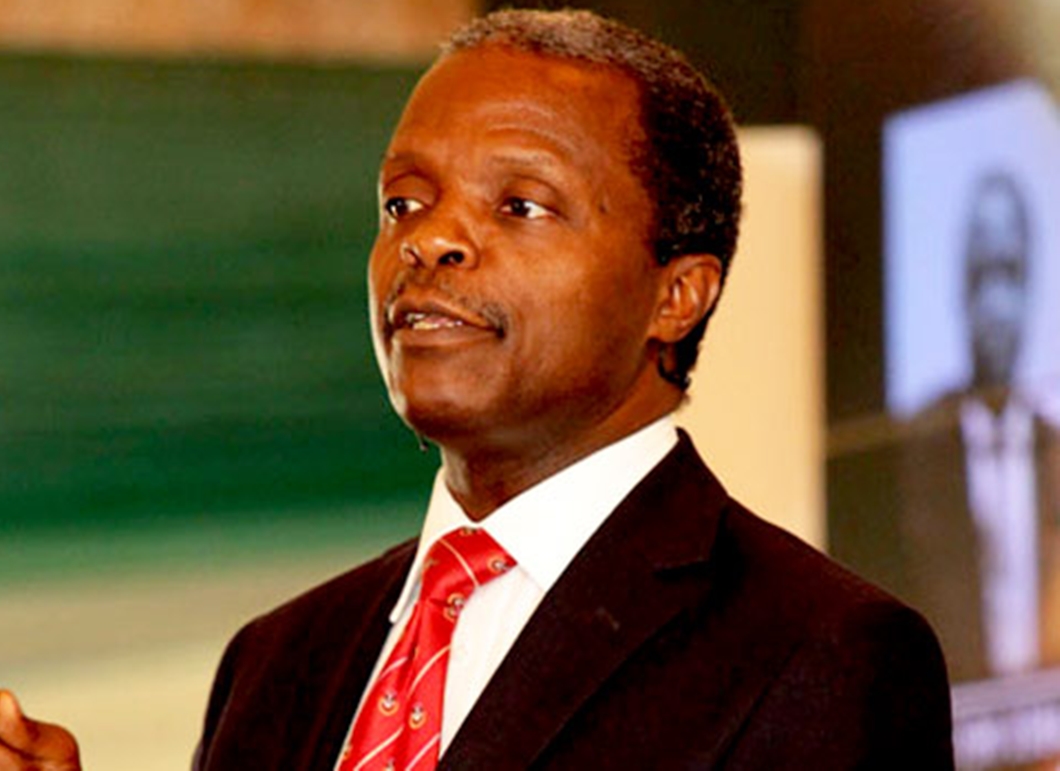The Vice President, Prof. Yemi Osinbajo, on Friday, said that the new price regime of Premium Motor Spirit (PMS) was not that of subsidy removal but of foreign exchange (forex) problem.
He made this known in a statement he issued in Abuja titled “The Fuel Pricing Debate: Our Story”, stressing that
“I have read the various observations about the fuel pricing regime and the attendant issues generated.
“Certainly, all the issues have strong points but the most important issue is how to shield the poor from the worst effects of the policy which I will address in another note.”
Giving further explanation on the new petrol policy, the vice president declared that “the real issue is not the removal of subsidy because at 40 Dollars a barrel, there isn’t much of a subsidy to remove.”
According to him, President Muhammadu Buhari is probably one of the most convinced pro-subsidy advocates, narrating that “what happened is as follows: our local consumption of fuel is almost entirely imported.
“The NNPC exchanges crude from its joint venture share to provide about 50 per cent of local fuel consumption and the
remaining 50 per cent is imported by major and independent marketers.
“These marketers up until three months ago, sourced their foreign exchange from the Central Bank of Nigeria at the official rate and since late last year, independent marketers brought in little or no fuel because they have been unable to get foreign exchange from the CBN.
“The CBN simply did not have enough foreign exchange.”
He explained that in April, oil earnings dipped to 550 million Dollars and the amount required for fuel importation alone was about 225 million Dollars.
The vice president noted that NNPC tried to cover the 50 per cent shortfall by dedicating more export crude for domestic consumption.
He, however, added that besides the short term depletion of the Federation Account, “which is where Federal and state governments are paid from, further cash-call debts keep pilling up” and NNPC lacked the capacity to distribute 100 per cent
of local consumption nationwide.
Osinbajo wrote that before this time, NNPC was responsible for only about 50 per cent, which was part of the reasons for the lingering scarcity of petrol.
“We realised that we were left with the only option of allowing independent marketers and any Nigerian entity to source
for foreign exchange and import fuel.
“We expect that foreign exchange will be sourced at an average of about N285 to the Dollar, (current interbank rate) and importers
will then be restricted to selling at a price between N135 and N145 per litre,’’ he added.
The vice president said the Federal Government expected that with competition, more private refineries and NNPC refineries working at full capacity, prices would drop considerably, stressing that “our target is that by fourth quarter of 2018, we should be producing 70 per cent of our fuel needs locally.
“At the moment, even if all the refineries are working optimally, they will produce just about 40 per cent of our domestic fuel
needs,’’ he explained.
Osinbajo said he avoided mentioning other details of the Petroleum Pricing and Regulatory Agency (PPRA) cost template but rather focused on the cost component largely responsible for the substantial rise, namely foreign exchange.
“This is therefore, not a subsidy removal issue but a foreign exchange problem in the face of dwindling earnings,” he emphasised.(NAN)

